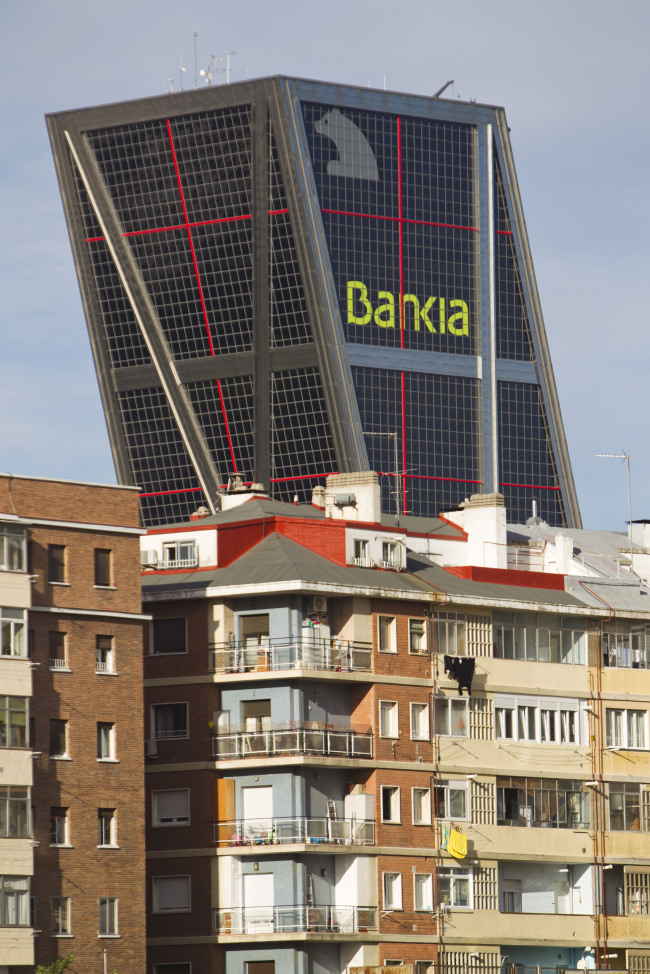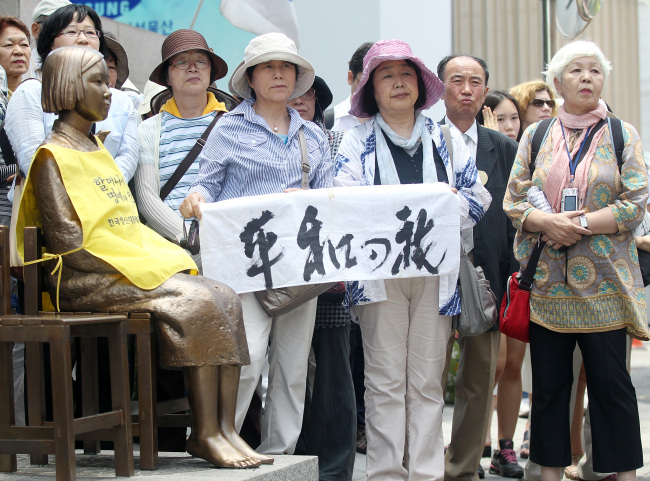Juncker expects Spain to
request aid by MondayMADRID (AP) ― Spain’s troubled
banks could need as much as 62 billion euros ($78.6 billion) in new capital to
protect themselves from economic shocks, according to independent auditors hired
by the government to assess the country’s struggling financial sector, officials
said Thursday.
The Spanish government will use the auditors’ report as
the basis for their application for a bank bailout loan from the 17 countries
that use the euro. With tensions rising over the future of the eurozone, Spain
is expected to submit its specific request for outside assistance no later than
Monday, said Jean-Claude Juncker, who chairs meetings of zone’s finance
ministers.
“We invited Spain to pursue this clear and ambitious
strategy, which needs to be implemented swiftly and communicated early,” Juncker
said after Spanish Economy Minister Luis de Guindos presented the audit results
to the ministers who are members of the so-called Eurogroup.
Deputy Bank
of Spain Governor Fernando Restoy noted that this worst-case scenario cited by
the auditors was far below the 100 billion euros ($126.7 billion) loan offered
by the eurozone’s finance ministers two weeks ago.
 |
| The
headquarters of Bankia SA is seen above residential apartments in Madrid.
(Bloomberg) |
Spain’s banking sector is
struggling under toxic loans and assets from the collapse of the country’s
property market in 2008. Concerns that Spain’s economy is so weak that it could
not afford the cost of propping up its banks has sent its borrowing costs
soaring to levels not seen since it joined the European single currency in 1999.
The worry is that Spain could soon find itself unable to finance its
debts by itself and join Greece, Ireland and Portugal in seeking a rescue loan
for not just the banks but the whole country.
The stakes are huge: Spain
is the eurozone’s fourth-largest economy and would seriously hit the bloc’s
finances should it need bailing out. The country is struggling through a
recession with a 24.4 percent jobless rate. On top of this, government’s main
customers at its debt auctions are Spanish banks ― the sector now being bailed
out. In a sign of how reluctant the markets are to invest in Spain, the country
had to pay sharply higher interest rates to raise 2.2 billion euros ($2.8
billion) in a bond auction Thursday.
The audits of Spain’s lenders,
carried out by consultancies Roland Berger and Oliver Wyman, covered 14 banking
groups that account for 90 percent of the country’s financial sector. The
country will use the reports’ findings to decide how big a bailout loan to ask
for.
Restoy and Deputy Economy Minister Fernando Jimenez Latorre
declined to outline individual banks’ needs.
In the auditors’ stress
test for the worst-case economic scenario ― a fall in gross domestic product of
6.5 percent over the period 2012-2014 ― most of the banks were deemed to be in a
“comfortable” position, Restoy said.
“We’re not talking about the
imperative capital necessities of the banks. We’re not talking about someone
urgently needing such and such an amount of capital to deal with their
obligations,” said Restoy. “We’re talking about the capital that would be needed
if we were to see a situation of extreme tension which is very unlikely to come
about.”
“We should keep in mind we are not talking about how much
capital an entity needs to survive. We’re talking about how much capital an
entity will need to confront a situation of extreme stress,” he added.
Eurozone finance ministers offered Spain a bailout loan of up to 100
billion euros on June 9. The terms of the loan ― for which Spain, rather than
banks, will ultimately be responsible for ― still have to be negotiated.
Spanish Prime Minister Mariano Rajoy hailed the audit results during a
visit to Brazil as an important move toward restoring international confidence
in Spain, currently seen as one of the eurozone’s weakest links.
“It’s a
decisive step in the right direction because it makes an accurate and credible
diagnosis that fences in the capital needs in manageable margins and ensures
that the financial assistance made available to Spain by our European partners
is more than enough to solidly clean up our financial institutions,” Rajoy said
in Sao Paulo after meeting with business leaders.
Oliver Wyman Inc. gave
a worst-case range of 51 billion euros to 62 billion euros in new capital needs
while Roland Berger Strategy Consultants GmbH gave a single figure of 51 billion
euros.
The release of the audits probably won’t erase market nervousness
about Spain, said Mark Miller, an analyst with Capital Economics in London.
“At face value it looks as if there is a reasonable safety margin given
that up to 100 billion euros is potentially available,” he said. “Having said
that, the extent of the economic situation in Spain could even deteriorate
beyond what is being described as an adverse scenario.”
Some investors
will likely still be nervous over whether the auditors’ reports discovered most
if not all of the toxic assets on the balance sheets of Spain’s banks, Miller
said. And their fears are compounded by concerns that Greece might still end up
having to leave the single currency, further destabilizing the eurozone and
especially Spain.
The results of the audits are good news for Spain
because both companies came up with similar numbers and the overall figures were
lower than some estimates of the banking sector’s recapitalization needs, said
Gayle Allard, an economist with Madrid’s IE Business School.
“I think
it’s a fantastic result because there was talk of needs of 70 billion euros to
80 billion euros and that the loan could have been for 100 billion euros,” she
said.
Investors could still easily find something to scare them about
the results, Allard said, “but I don’t think there’s any reason to do so.”
She added: “The audits have come in better than anyone has expected,
there’s still some uncertainty, but if both of them are coming to the conclusion
of those numbers we’ve got to be in the ballpark.”











.jpg)

 By Kwaak
Je-yup
By Kwaak
Je-yup
 And when
controversy arises, the group elicits scorn and fury like no other. Beginning as
a seven-member act — with Junsu, Nickhun, Taecyeon, Wooyoung, Junho, Chansung
and Jaebeom — the 2009 announcement of the last name’s removal from the group
brought angry fans holding demonstrations for weeks.
And when
controversy arises, the group elicits scorn and fury like no other. Beginning as
a seven-member act — with Junsu, Nickhun, Taecyeon, Wooyoung, Junho, Chansung
and Jaebeom — the 2009 announcement of the last name’s removal from the group
brought angry fans holding demonstrations for weeks.
 “Before one
performance, we actually agreed not to rip our shirts off,” says Junho, 22,
referring to one of their signature attractions, “But as we were coming off
stage, we noticed Taecyeon’s abs were showing. He explained it as an
in-the-moment thing; he said he was high on the fans’ love.”
“Before one
performance, we actually agreed not to rip our shirts off,” says Junho, 22,
referring to one of their signature attractions, “But as we were coming off
stage, we noticed Taecyeon’s abs were showing. He explained it as an
in-the-moment thing; he said he was high on the fans’ love.”





